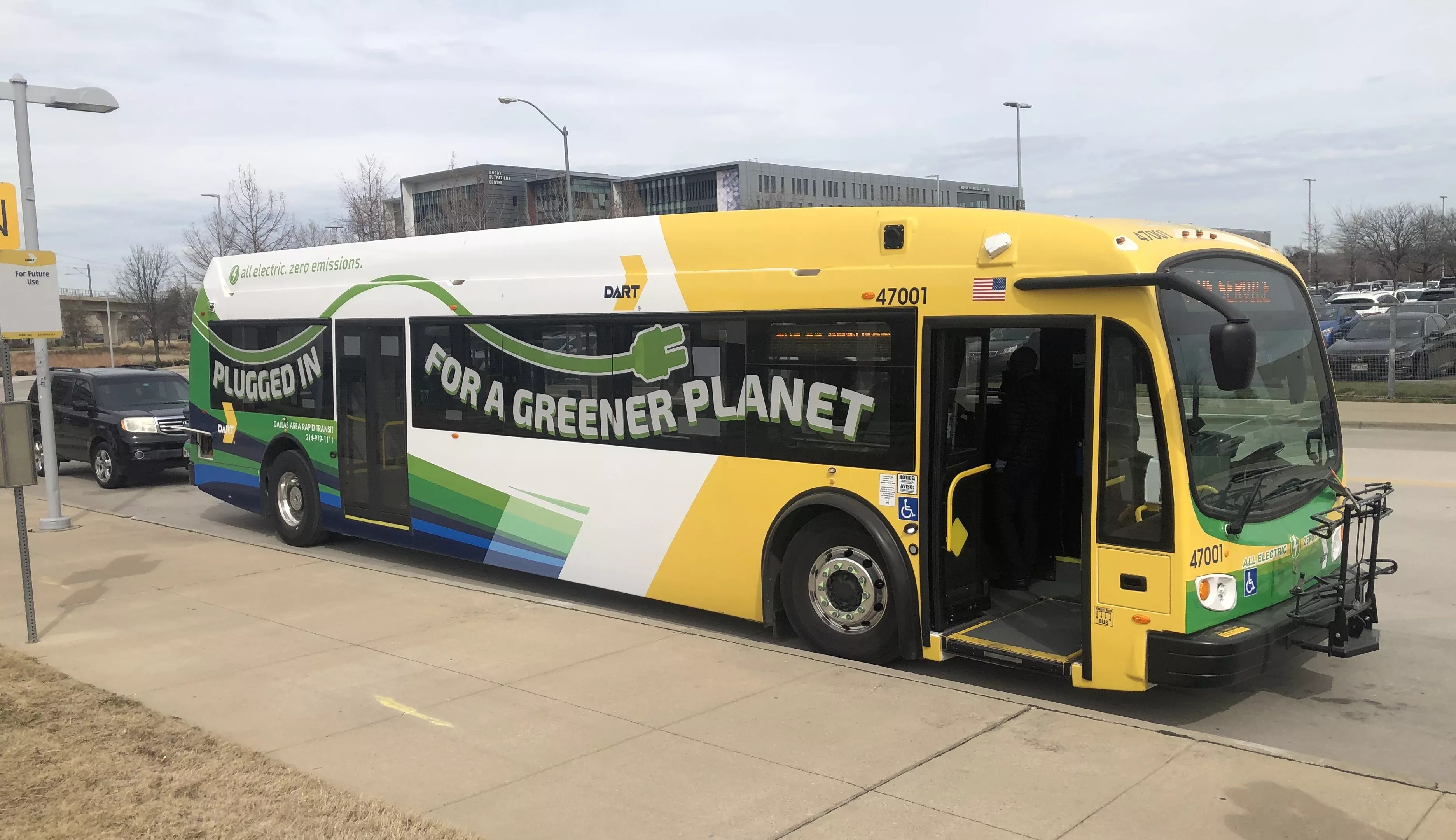
Gordon Shattles/DART

Audio By Carbonatix
After months of anxious waiting, the Dallas Area Rapid Transit (DART) board of directors has elected to adopt proposed service changes, which include reduced frequency, increased fares, and eliminated routes. This amounts to the largest service change package in the transit service’s 40-year history.
Seven routes, 209, 225, 254, 255, 305, 378, and 383, will be eliminated. The fixed bus route frequency will be reduced from every 15 minutes to every 20 minutes. In August, the board approved increasing curb-to-curb paratransit fees by 50 cents to $4 per one-way ride and increasing the cost of a single-ride standard ticket from $3 to $4.
The final vote on remaining changes to route frequencies and bus routes, originally scheduled for late August, was delayed two weeks to allow member cities to provide feedback on the plan.
“We have meetings with all of the cities in two days to talk about the budget,” said DART Director Randall Bryant during the August meeting, when the board decided to delay the vote on certain items. “The cost of delayed implementation, for me, it’s not an exclusion. It’s a point of consideration.”
Delaying the decision also delayed the launch date for proposed changes, originally set for January 2026, by two weeks, costing the service an extra $1 million.
The changes were proposed as a money-saving solution to a continuous battle with the city of Plano, which has frequently expressed interest in significantly reducing its tax contributions to the service.
A recent report, conducted by a third-party auditor, unveiled that Plano contributed far more than their return on investment. In 2023, the city paid more than $109.6 million but only received $44.6 million back in services. Comparably, Dallas contributed $407.8 million, but received $690.5 million back in total service offerings.
“I’d like to see us make a serious run at correcting that,” Plano’s DART representative Anthony Ricciardelli said at the meeting on Tuesday night. “While I appreciate that there are some service additions for Plano in these service changes, they’re frankly fairly small compared to the magnitude of that disparity between Plano’s contribution to DART and DART’s investment back in Plano.”
How We Got Here
The proposed changes were drafted in March, as part of the organization’s general mobility plan (GMP). As the plan launched, a bill filed by Rep. Matt Shaheen of Plano moved through the legislature. The bill, HB 3187, dubbed the DART Killer bill, would allow each of the 13 member cities to reduce their tax contribution by a quarter, resulting in billions of dollars in loss for the service.
“This bill isn’t a tweak to funding. It’s a full-on dismantling of the DART system,” said Jeamy Molina, DART chief communications officer said in the release. “The people of North Texas voted twice to fund a unified, regional transit system. House Bill 3187 completely ignores their voice and puts the future of public transportation in jeopardy.”
Shaheen had filed similar bills in legislative sessions before, but this iteration cleared the House Committee on Transportation, creating chaos in North Texas. The bill was never scheduled for a House Floor reading, but its success was enough to make the DART board consider significant restructuring.
“The GMP helps nobody, except for the small handful of politicians who are trying to grease their buddies’ pockets,” Mark Broadhurst, an Amalgamated Transit Union Local 1338 board member and DART mechanic, told the Observer in June. “…DART employees and staff don’t want this.”
The GMP outlines the organization’s plans until 2027, right in time for the 90th Texas Legislative Session.
“DATA does not support the GMP, but we accept it,” Tyler Wright, vice president of the Dallas Area Transit Alliance to the Observer. “We’re not excited about it, but we’re okay with it as long as it protects DART from future existential threats of that same nature that we saw [during the 89th Legislative Session.”
Riders Respond
A common criticism of DART is that the small population of riders does not warrant how much the service costs member cities, but critics highlight that significant reductions would immobilize the people who are reliant on DART.
“It’s a surface-level read of the issue,” Wright said in May. “When you see empty buses, usually those buses are pretty close to the transit center, so they’ve already dropped off most of their people. [Empty buses are there] just because they just left the station. I’ve ridden these routes. They pick up dozens of people.”
The proposed changes originally included reducing the service area for paratransit services and nearly doubling the cost for curb-to-curb paratransit services. However, the board scrapped the plans early after significant community pushback voiced concerns about the largest changes falling on the most vulnerable communities.
“I think it’s one of the most vulnerable parts of the community,” said Jesse Beck, a Preston Hollow father whose 25-year-old son is reliant on paratransit services to get to My Possibilities, a nonprofit offering continuing education courses to adults with cognitive disabilities. “And it was hard for that vulnerable community, per se, to have a voice to align, coalesce, and really have their input heard.”
Though the changes come with disappointment, a sigh of relief can be let out, and DART can now focus on other improvements and changes in the coming years.
“We’ve been doing this for the past year,” said Wright. “Let’s get this passed so we can focus on what we need next. We’ve got a whole two-page sheet of suggestions for things we can advocate for that we’re ready to get in on.”